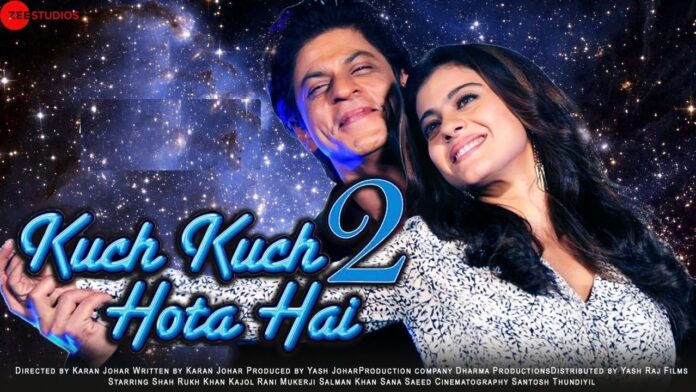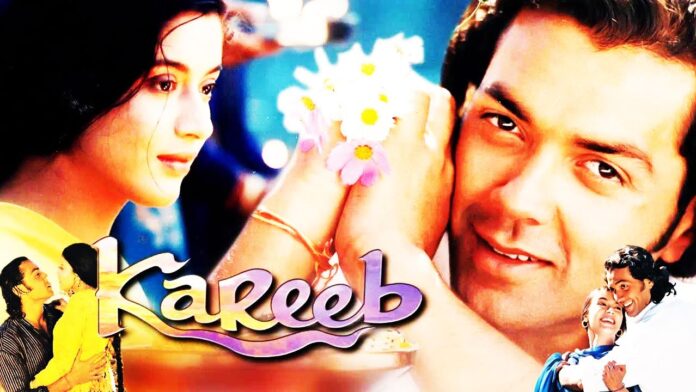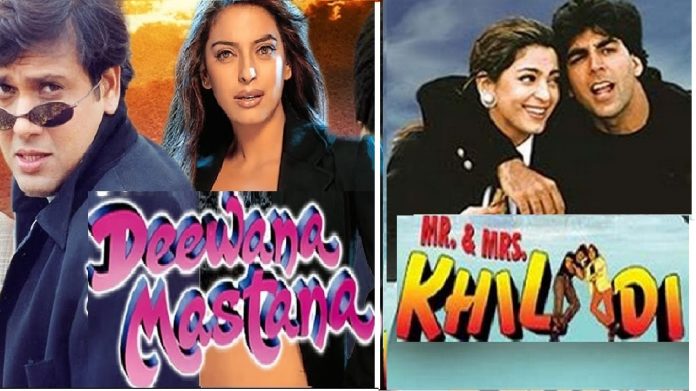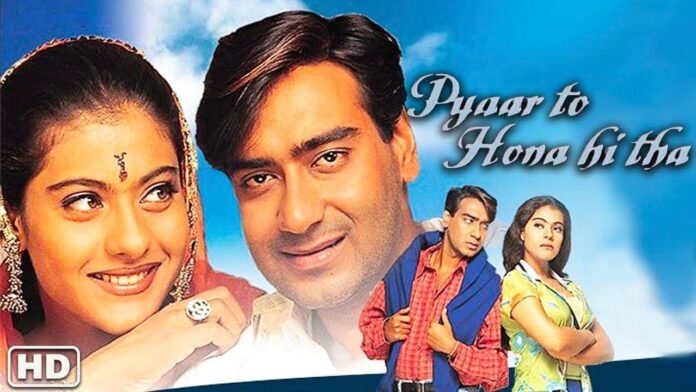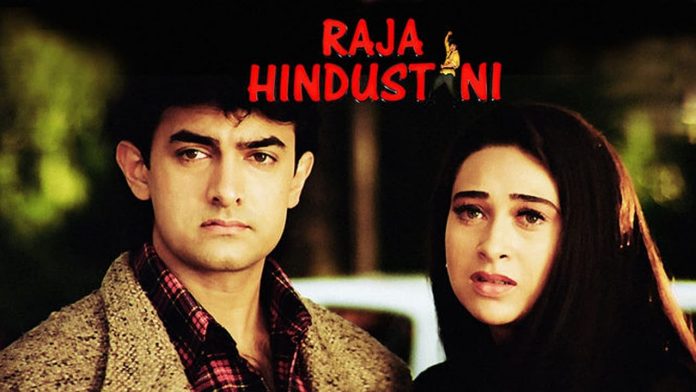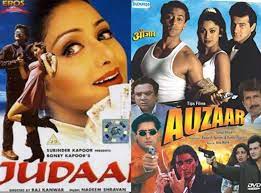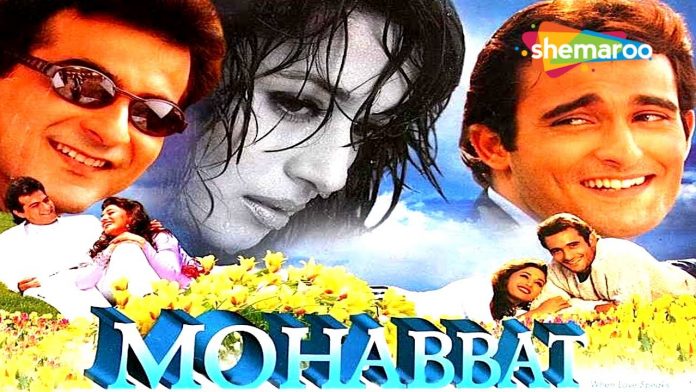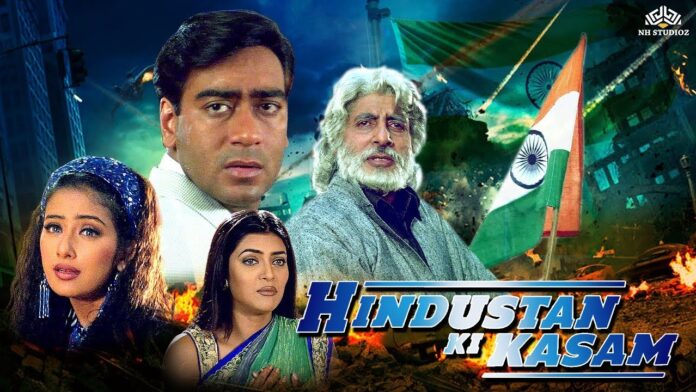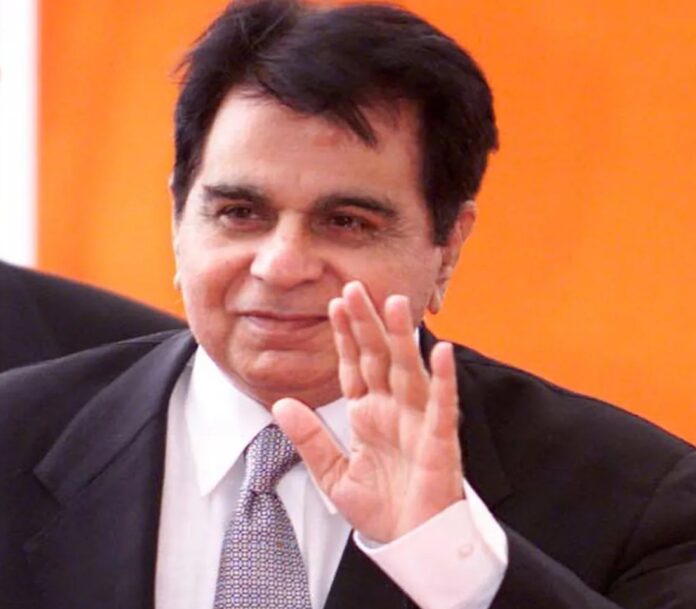Not A Bad Bargain
The joy that came along with the runaway success of Karan Johar’s Kuch Kuch Hota Hai has been short-lived. Although KKHH continues to do roaring business, what has cast a pall of gloom in the industry is the unfortunate failure of Feroz Khan’s dream project, Prem Aggan.
Since Prem Aggan was the launching pad of Khan’s son, Fardeen, distributors put a lot of confidence in the project and the maker. An exceptionally high price of 1.6 to 1.75 crore was paid per major circuit for the film even though both, Fardeen Khan and Meghna Kothari, were newcomers. Nor did the film boast of a formidable supporting cast. But yet, speculation was the name of the game. And speculate the distributors did. In the process, they’ve burnt their fingers rather badly. On an average, every distributor will lose about 75% of his investment in the film.
Couldn’t this catastrophe have been avoided? Although there’s no readymade acid test to prove so, the fact is that it could truly have been averted. If there were script doctors in India, as there are in Hollywood, chances are, there wouldn’t have been such a major bomb. That is not to say that script doctors, who offer expert and objective opinion on a filmmaker’s script, are infallible or can never go wrong, but they at least give the filmmaker a second opinion. More often than not, the producer, director and writer of a film get so involved in the film during its making that, after a point of time, they may lose all objectivity as far as judging the film is concerned. This is what seems to have happened to Feroz Khan because the film has innumerable mistakes. It is not as if Feroz Khan has forgotten filmmaking, it is just that his judgement failed this time. And failed rather badly in several departments.
A salvage operation could have been carried out by a script doctor, but will Bollywood wake up to the need for such an entity? Such experts are necessary, more so today when the stakes in film production and distribution are so high. If fees of a few lakh of rupees to script doctors can save many crores of the producer, is it a bad bargain?
Here, a word of caution to distributors too. It has become the wont of distributors to cry over losses and yet never act with caution. While on the one hand, they keep cribbing about unrealistic and high prices, on the other, it is these very distributors who do not bat an eyelid before paying fancy prices to producers. It is the fear that ‘if I don’t buy the film, someone else will’, which prompts distributors to pay unrealistically heavy prices. As it seems to have happened in the case of Prem Aggan.
Although this wouldn’t have saved the situation, another related comment would not be out of place here. Feroz Khan, too, like Mani Ratnam (Dil Se..), did not show his film to his distributors. It is strange how producers, whose partners-in-business distributors actually are, work in a style which does not take the partners into confidence. This is not a healthy sign at all.
– Komal Nahta
LATEST POSITION
KUCH KUCH HOTA HAI continues to mesmerise the public from North to South and East to West.
Prem Aggan has been totally rejected. It will entail heavy losses to all its distributors. 1st week Bombay 24,31,295 (60.55%) from 8 cinemas (7 on F.H.); Ahmedabad 4,54,600 from 4 cinemas, Rajkot 1,18,680, Jamnagar (matinee) 12,600; Pune 6,22,972 from 5 cinemas, Solapur 1,46,334 from 2 cinemas (1 in matinee); Delhi 17,24,930 (45.29%) from 8 cinemas; Kanpur 2,25,726 from 2 cinemas, Lucknow 3,04,949, Agra 1,32,000, Varanasi 1,23,211, Hardwar 36,496; Amritsar 51,500; Calcutta 12,32,145 from 15 cinemas; Nagpur 2,07,815 from 3 cinemas, Jabalpur 66,712, Amravati 80,366, Raipur 78,190, Bhilai 38,489, Yavatmal 52,740; poor in Indore, Bhopal 1,51,167 from 2 cinemas; Jaipur 4,34,182 from 3 cinemas; Hyderabad 26,33,918 from 15 cinemas (1 in noon); Vijayawada 1,92,890, Visakhapatnam 1,45,860.
…………..
Hero Hindustani 2nd week Bombay 7,28,422 (41.46%) from 6 cinemas (4 on F.H.); Ahmedabad 1,77,750 from 3 cinemas, Rajkot (matinee) 12,986, Jamnagar (matinee) 8,897; Pune 1,48,878 from 3 cinemas (1 in matinee), Solapur 30,664; Delhi 65,978; Kanpur 45,805, Agra 82,000, Varanasi 59,888, 1st week Hardwar 32,886; 2nd week Nagpur 44,471 from 2 cinemas, Jabalpur 36,955, total 1,27,713, Amravati 64,375, Akola 47,019, total 1,23,775, Raipur 59,923, Bhilai 30,186, total 85,736, 1st week Jalgaon 87,231; 2nd week Bhopal 42,782; Hyderabad 1,91,893 from 3 cinemas (2 in noon).
…………..
Bade Miyan Chote Miyan will fetch commission (part or full) in most of the circuits. 3rd week Bombay 28,19,377 (83.56%) from 9 cinemas (9 on F.H.); Ahmedabad 8,16,643 from 5 cinemas, Rajkot 1,52,715, Jamnagar 86,971; Pune 9,13,384 from 4 cinemas, Kolhapur 2,11,448, Solapur 2,05,902; Delhi 24,70,400 from 8 cinemas (2 on F.H.); Kanpur 3,93,984 from 2 cinemas, Lucknow 4,61,808, Varanasi 1,93,644, Meerut (6 days) 2,02,380, Bareilly (6 days) 78,224 (45.34%); Calcutta 9,56,097 from 13 cinemas; Nagpur 4,35,461 from 4 cinemas, 2nd week Jabalpur 2,25,027, total 6,13,574, Amravati 2,40,514, Akola 2,03,879, total 5,05,961, 3rd week 3 days 70,043, 2nd week Raipur 1,13,960, Bhilai 71,377, total 2,44,120, Jalgaon 1,52,054, Wardha 86,728, Chandrapur 1,85,314, total 4,31,398, Yavatmal 1,08,106, 3rd week 3 days 40,920; 3rd week Indore 2,61,000 (63.74%), Bhopal 1,58,378; Jaipur 3,32,642 from 2 cinemas, 1st Bikaner 2,45,181; 3rd week Hyderabad 7,39,864 from 4 cinemas (1 in noon); 1st week Vijayawada 1,15,706.
Kuch Kuch Hota Hai is par excellence. 3rd week Bombay 55,04,562 (99.70%) from 11 cinemas (5 on F.H.); Ahmedabad 13,45,597 from 4 cinemas, Valsad 3,68,140, Baroda 2,24,855 (100%), Padra 2,26,260, Jamnagar 1,40,735, total 4,42,537, Adipur 1,28,726; Pune 12,61,686 from 4 cinemas, Kolhapur 2,34,115 (100%), Solapur 2,25,595 (100%), Malegaon 100%; Delhi 53,22,316 from 11 cinemas; Kanpur 5,35,369 from 2 cinemas, Lucknow 5,09,135, Agra 3,88,075, Varanasi 2,55,963, Meerut 2,29,289, Bareilly 1,67,466 (59.03%), Muzaffarnagar 95,012, Saharanpur 1,34,712, Hardwar 1,20,906, total 4,13,980; Calcutta 15,91,627 from 8 cinemas; Nagpur 7,56,079 from 3 cinemas, Amravati 2,46,652, Akola 1,73,963, total 5,45,482, Raipur (6 days) 1,58,267, Bhilai (6 days) 1,91,019, total 6,79,554, Jalgaon 1,60,164, Gondia 1,22,185, total 3,88,888; Indore 4,81,524 (79.32%) from 2 cinemas; Jaipur 8,94,506 from 2 cinemas, Ajmer (29 shows) 1,66,380, Bikaner 1,94,425; Hyderabad 11,35,327 from 5 cinemas (2 in noon, 1 on F.H.).
Bandhan 5th week Bombay 3,44,179 (50.73%); Ahmedabad 1,07,045 from 2 cinemas, Rajkot 49,087, Jamnagar (matinee) 11,476; Pune 4,80,093 from 5 cinemas (1 in matinee), Kolhapur 1,04,000, Solapur (matinee) 57,679, 3rd week Barsi 30,538, 1st week Miraj 1,09,004; 5th week Delhi 4,01,134 from 3 cinemas (3 on F.H.); Kanpur 2,19,559 from 2 cinemas, Lucknow 2,00,528, Varanasi 1,14,296, Bareilly 45,435 (21.02%); Calcutta 1,32,739; Nagpur 1,67,855 from 2 cinemas, Jabalpur 1,35,471, total 9,22,662, Amravati 92,397, Akola 91,212, total 5,24,100, Raipur 82,951, Bhilai 60,186, Jalgaon 86,809 (4th 90,096), 2nd week Yavatmal 85,466; 5th week Indore 55,000 (1 on F.H.), Bhopal 94,418; Jaipur 1,72,384, 3rd week Jodhpur 90,000, 5th week Bikaner 35,977; Hyderabad 3,22,842 from 3 cinemas (1 in noon).
…………..
MAJESTIC CINEMA OF CALCUTTA GUTTED IN FIRE
Majestic cinema in Calcutta was gutted in a fire on the night of 3rd November. Although the exact cause of the fire is not known, it reportedly started in the ceiling of the cinema, presumably due to a short circuit. Fortunately, no casualties were reported as the fire broke out after the last show ended on 3rd. The entire building was reduced to ashes.
The cinema had recently been purchased by Bengal distributor Nesar Ahmed.
FFI EXECUTIVE COMMITTEE TO MEET ON 18TH
The seventh meeting of the executive committee of the Film Federation of India (FFI) will be held on 18th November at the IMPPA House, Bombay.
A number of key issues will be addressed and discussed by the committee members. Chief among the items on the agenda are:
(i) consideration of the membership application received from the South Indian Dubbing Film Producers Association, Madras;
(ii) further discussion on the restrictions imposed by the Karnataka Film Chamber of Commerce on the release of non-Kannada films in Karnataka (it may be recalled here that the FFI president and a few other members had discussed the issue with the president and the executive committee members of the KFCC on October 6 and 7 in Bangalore);
(iii) discussion of key issues pertaining to the 30th International Film Festival of India, to be held between January 10 and 20, 1999 in Hyderabad; and
(iv) to initiate the procedure for the adoption of alterations in the Articles of Association of the FFI.
Apart from these main issues, the executive committee will also express its opinion on various items to be considered by the Film Industry Co-ordination Committee, which is likely to meet immediately after the executive committee meeting is over. During the Co-ordination Committee meeting, the selection of the chief guest and films to be included in the mainstream section of the IFFI ’99 will be finalised.
HYDERABAD CINEMA RAIDED FOR SCREENING ‘BITS’
Acting swiftly on a tip-off, the Hyderabad police commissioner’s task force (East zone) raided the Light House cinema at Abids on 2nd November and seized the prints of an English film, Play Nice, and two trailers.The police also arrested manager D. Venkat Rao and projector operator Sardar Khan on the charges of screening obscene films. ‘Bits’ of nude scenes from the film were being screened at the end of every reel, it is reported.
COLUMBIA TO DISTRIBUTE HINDI FILMS
Columbia Tristar has made an application to the Foreign Investment Promotion Board (FIPB) seeking permission to distribute Hindi films in the country. The Board’s approval is awaited. Presumably, distribution of Hindi films is the first step, and the next may well be production of Hindi films.
KUMAR VASUDEV DEAD
P. Kumar Vasudev, the director of India’s first mega TV serial, Humlog, passed away in Pune on 31st October after a protracted illness. He was 60 and is survived by his wife and three daughters.
An alumni of the FTII, Vasudev’s name figured in the Guinness Book of World Records as the maker of the longest TV serial, Humlog (156 episodes). He had assisted Krishna Shah in Shalimar and had directed Ajubey and Kunwari Bahu.
MADANLAL SHAH DEAD
Prominent Gujarat distributor and exhibitor Madanlal T. Shah died on 1st November at Bhuj following a prolonged illness. He was 80.
Madanlal Shah had been a member of the executive committee of the IMPDA for many years. A resolution to condole his death was adopted in the meeting of the executive committee of IMPDA on 5th November.
TARACHAND BHATIA DEAD
Veteran Rajasthan distributor and exhibitor Tarachand Bhatia of Green Light Pictures, Sriganganagar, expired on 1st November at Sriganganagar. He was 83 and had been associated with the film industry for 64 years. He used to mostly distribute Punjabi films and was known for his fair dealings. Tarachand Bhatia was the elder brother of our Sriganganagar representative, R.P. Bhatia.
‘JAB PYAAR KISISE…’ SILVER JUBILEE
Tips Films’ Jab Pyaar Kisise Hota Hai entered 25th week at Dreamland (matinee), Bombay on 6th November.
YOU ASKED IT
Is it true that Hrithik Roshan has been finalised for another film, besides his dad’s Kaho Naa…Pyaar Hai?
– Producer Mohan Kumar has signed Satish Kaushik to direct a film starring Hrithik.
Why are so many horror-sex films being made?
– Distributors consider them safer than other films in the ‘small films’ category. Besides, there’s also scope to add ‘bits’ in such films.
Why has no new film been released this week?
– No reason in particular. It just happened, perhaps. The India-Sri Lanka cricket match played in Sharjah on Friday (6th November) was not the reason for there being no release this week.
DO YOU KNOW?
* It makes news when Mithun Chakraborty gives 16 retakes for a single scene because the actor is known to be averse to giving even three or four retakes. But he did give 16 retakes for a scene for director Jayant Gilatar’s HIMMATWALA. Incidentally, Jayant is directing producer A. Krishnamurthi’s next film also, after HIMMATWALA. It is titled MAWAALI. A heroine, who is turning to production, has also signed Jayant Gilatar to direct her maiden venture.
* Ajay Devgan’s distribution manager, Pinky Badlani, has released ISHQ this week (golden jubilee week) all over Bombay circuit. To match with its golden jubilee, he has released it in 50 cinemas!
* KKHH has created a city record by collecting 1,51,055/- in 1st week, 1,50,747/- in 2nd week, and 1,40,735/- in 3rd week at Galaxy, Jamnagar. Total for 3 weeks: 4,42,537/-.
* KKHH has created theatre records in 3rd week at the following cinemas of Delhi: Chanakya by collecting 9,76,164/-, Batra (5,37,787/-), Vishal (8,26,367/-), Eros (3,49,199/-) and Anupam PVR (5,43,129/-, full).
* KKHH has created a city record by collecting 5,09,136/- in 3rd week at Novelty, Lucknow.
* KKHH has created a city record by collecting 3,51,458/- in 3rd week at Heer Palace, Kanpur. It has also created a theatre record by collecting 1,83,911/- in 3rd week at Anupam, Kanpur.
* KKHH has created a city record by collecting 2,29,289/- in 3rd week at Nandan, Meerut.
* KKHH has created a city record by collecting 1,67,486/- in 3rd week at Kamal, Bareilly.
* KKHH has created a city record by collecting 2,16,224/- in 3rd week at Pawan, Ghaziabad.
* KKHH has created a city record by collecting 2,55,964/- in 3rd week at Taksal, Varanasi.
* KKHH has created a city record by collecting 2,05,203/- in 3rd week at Gautam, Allahabad.
* KKHH has created a city record by collecting 2,43,040/- in 3rd week at Natraj, Dehradun.
* KKHH has created a city record by collecting 1,34,713/ in 3rd week at Kalpana, Saharanpur.
* KKHH has created a city record by collecting 1,64,042/- in 3rd week at Apsara, Aligarh.
* KKHH has created a city record by collecting 1,20,906/- in 3rd week at Shivji Palace, Hardwar.
* KKHH has created theatre records in 3rd week at the following cinemas of Calcutta: Metro by collecting 4,80,218/-, Priya (3,91,923/-, full), Radha (2,21,922/-), Sonali (1,59,141/-), Puspasree-Behala (97,858/-) and Puspasree-Kadamtalla (1,03,897/-).
* KKHH has created a city record by collecting 1,60,164/- in 3rd week at Rajkamal, Jalgaon. It had also created a Jalgaon district record by drawing all 32 shows full in 1st week, and all 28 shows full in the 2nd week. 1st week’s collection: 2,00,323/-. 2nd week: 1,70,271/-.
* KKHH has created a city record by collecting 2,46,652/- in 3rd week at Chitra, Amravati.
* KKHH has created a theatre record by collecting 1,73,963/- in 3rd week at Vasant, Akola. Total 5,45,482/-.
* KKHH has created a district record by collecting 1,22,185/- in 3rd week at Prabhat, Gondia. Total: 3,88,888/-.
* KKHH has created a city record by collecting 1,66,380/- in 3rd week (29 shows) at Plaza, Ajmer.
COMMENTS
GAFFARBHAI NADIADWALA
It is advisable to keep a 15% margin to cover the cost of the film going up due to unforeseen factors, while preparing the budget of a big film.
VASHU BHAGNANI
I don’t think it matters so much if the film goes over-budget or not. It all depends on how the film eventually fares at the box-office. If a film, which has gone way over-budget, turns out to be a hit, then all is forgotten. But if another, made within the budget, flops at the box-office, you will find its producer crying about how much money he spent on it.
ABDUL MAJEED (Controller of Kalpataru cinema, Jodhpur)
Thanks to cable TV, the business of repeat-run films in cinemas has been wiped out completely. We can’t dream of getting shares from repeat-run films released.
3-E
Education-Entertainment-Enlightenment
In All Indian Languages
Looks like the Southern film industry will always be a step ahead of its counterpart here. Over the past many years, the Southern film industry, according to many, has managed to steal a march over our industry simply by showing an exemplary degree of commitment towards work (which should inspire our people) and consistently coming up with bright, new ideas in their films (which actually inspires our people!). Keeping this perspective in mind, it should come as a further proof of the above contention that two of the foremost producers from the South have expressed their individual desires to make at least one film in every single language spoken in India. D. Rama Naidu and Ramesh Prasad (son of the legendary L.V. Prasad) are the two people who are currently (and independent of each other) engaged in making films in various Indian languages. Both, Rama Naidu and Ramesh Prasad — or rather, Prasad Productions set up by his late father — have been veterans with an impressive record in all South Indian languages as well as Hindi films. Moreover, Ramesh Prasad has already completed films in Oriya and Bengali as of present and will soon launch films in Marathi, Gujarati and other languages. For Ramesh Prasad, it is his late father’s unfulfilled desire that is driving him to embark on this untrodden path. D. Rama Naidu, on the other hand, has already made a film in Bengali and is currently making an Oriya film. Once that is completed, he will proceed to make films in other languages including Marathi, Gujarati etc. Whether or not they both succeed in their noble desire, is something only time can tell. On our part, we can only say, hats off and good luck!
Some Good News, Some Bad
Quick on the heels of Dil Se.., Karan Johar’s Kuch Kuch Hota Hai has also found its way into the Weekly Top 10 films showing in the UK. That the blockbuster achieved this in the very first week of its release there, makes it a no mean feat.
A certain news back home about Kuch Kuch Hota Hai is not very encouraging, however. Following stiff protests from several Sikh organisations, the Delhi and Punjab distributors have had to delete references to the Sikh community in the film. It may be recalled that cute little Parzan Dastur plays a lovable Sikh child in the film and there is no denying that a lot of humour involving him comes from the Sardar stereotype. However, what must be said in Karan Johar’s favour is that all references have been kept at a very subtle level. There is absolutely no overt attempt at creating comedy out of hurting the community. Perhaps, this is also the reason why the censors did not object to the scenes. But then, in India, it is fast becoming evident that the CBFC is not the only body that deals with censorship of films. In fact, each and every community — however small it may be — is fast coming up with its own form of censorship. And if this continues in the future too, making a film would very soon be tougher than walking a tightrope.
Of Ajay — Accident And Accolades
Ajay Devgan recently injured himself while shooting for a pre-climax action sequence for Hindustan Ki Kasam, being produced and directed by his father, Veeru Devgan. The accident, which occurred when a dare-devil stunt was being picturised at a village, resulted in Ajay fracturing his leg. The doctors have advised him bed rest for three weeks.
While his bed-ridden status is the bad news, the good news is that Ajay Devgan is winning accolades for his performance in Mahesh Bhatt’s Zakhm. His portrayal of Mahesh Bhatt himself in this latter’s autobiographical film has been marked by brilliance, say all those who have been lucky enough to see the film. Lucky, because the last anyone has heard of Zakhm is that it has been referred to the home ministry by the CBFC and it will be a while before it would be passed.
Another ‘Prem’ Bites The Dust
We don’t know whether this may comfort Feroz Khan who is currently recovering from the dismal failure of his Prem Aggan, but there is a definite precedence set by the flopping of 83% of all Hindi films starting with ‘Prem’. As many as 19 out of the total of 23 films made, titles of which began with ‘Prem’, have flopped in the past 36 years. These films are: Prem Patra (1962), Prem Pujari (1970), Prem Ki Ganga (1971), Prem Parbat (1974), Prem Shastra (1974), Prem Kahani (1975), Prem Bandhan (1978), Prem Vivah (1979), Prem Geet (1981), Prem Rahasya (1982), Prem Tapasya (1983), Prem Jyoti (1985), Prem Yudh (1985), Prem Jung (1991), Prem Deewane (1992), Prem Shakti (1994), Premyog (1994), Prem (1995) and Prem Granth (1996). The only exceptions are: Prem Nagar (1974), Prem Rog (1982), Prem Pratigyaa (1989) and Prem Qaidi (1991).
Well, at least Feroz Khan could take solace in the fact that he is not alone — though one is sure, he wouldn’t like to be in such ‘elite’ company either! Incidentally, trade-wallahs are referring to Prem Aggan as Prem Again — that is to say, Boney Kapoor’s Prem again!
Shame Shame!
While the industry should feel sorry about the lakhs and crores of rupees it loses every year due to black-marketing in tickets at cinemas, it is a fact that several cinema managements themselves openly indulge in black-marketing. But Sachinam cinema in Bombay, perhaps, takes the cake — rather, the entire bakery. A letter from the distributor of the film running at the cinema, to deliver some tickets at cost to the holder of the letter, is meaningless if the film is drawing full houses, because the letter adversely affects the revenue (in black, of course!) of the management. Recently, an avid cinegoer, holding such a letter of the distributor, was in for a rude shock when the management of Sachinam told him that the letter was a worthless piece of paper. Then, changing his mind, the guy told the letter holder: “Since you’ve come with the letter, we will give you a rebate of Rs. 5 per ticket on the black rate which is Rs. 120 per ticket. Please pay at the rate of Rs. 115 per ticket for the 12 tickets you want.” Shame! Incidentally, the cinema keeps its phone off the hook and its fax machine off so that they are not forced to commit tickets to anybody — because that would mean selling the tickets at face value and not in black.





























